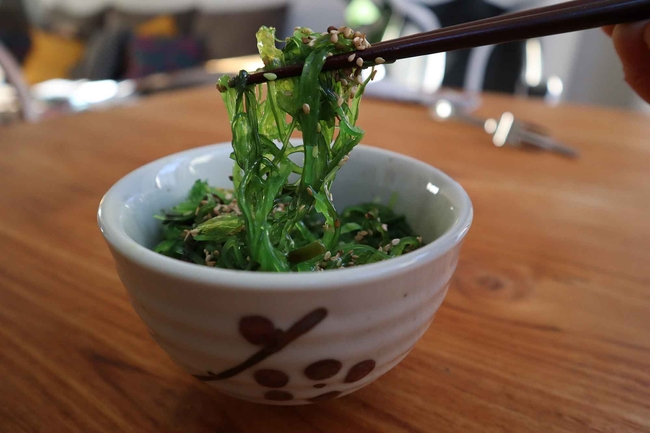07/03/2023 | What will we actually eat in the future? Climate change, population growth and scarce resources make this question more topical than ever. One possible answer could be: Vegetables from the sea. However, the advance of sea vegetables on German plates could be hindered by a lack of acceptance among people in Germany, who are familiar with seaweed mainly from swimming in the sea or walking on the beach.
In a new project, Lara Stuthmann from the ZMT, in cooperation with Dr. Martina Osmers from the Chemistry School Laboratory at the University of Bremen, will take the first steps to help young generations overcome their skepticism about algae-based foods. Age-appropriate modules are being developed so that students in grades 5 - 6 and 10 -12 can get to know the algae organism with all their senses during a visit to the school laboratory. Experiments in small groups, prepared information and tastings should enable the students to be more open towards algae as food in the future.
Because marine algae are not only healthy due to ingredients such as unsaturated fatty acids, proteins, minerals and antioxidants, they also taste great. Compared to agriculture, growing the sea vegetable also requires significantly less fresh water, fertilizer and arable land. Algae already account for the majority of marine aquaculture production, and in many Asian countries they are traditionally an integral part of the diet.
Lara Stuthmann is an expert in the field of edible marine algae. In her doctoral thesis, she is primarily studying a species of algae known as sea grape or green caviar (Caulerpa lentillifera). In cooperation with the Institute of Oceanography (IO) in Vietnam, where sea grapes have long been cultivated in aquaculture, she is investigating the potential of this algae as a healthy food.
The student project launched in December 2022. School classes can register via the Chemistry School Laboratory at the University of Bremen from May 2023. The project will also be presented at this year's Open Campus of the University of Bremen and its partners on the Pagoda Mile in June.





